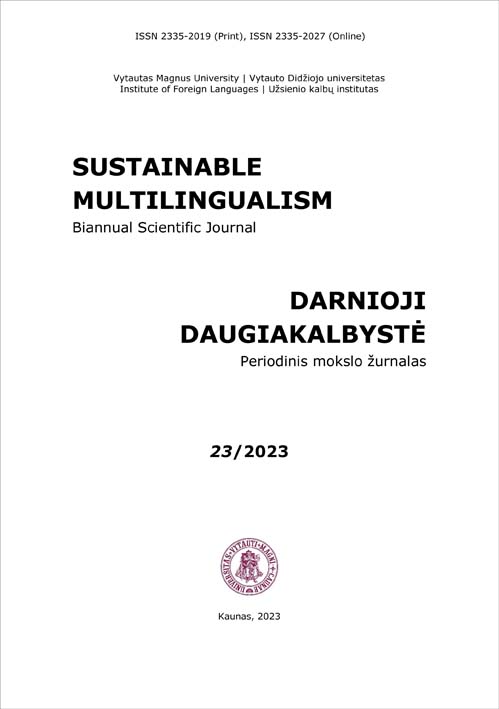Learning English under the Sounds of Air Raid Sirens: Analysing Undergraduate EFL Students’ Sustainable Learing Practices
Learning English under the Sounds of Air Raid Sirens: Analysing Undergraduate EFL Students’ Sustainable Learing Practices
Author(s): Oleksandr Kapranov, Oksana VoloshynaSubject(s): Language studies, Language and Literature Studies, Foreign languages learning
Published by: Vytauto Didžiojo Universitetas
Keywords: English as a Foreign Language (EFL); EFL teaching and learning; Reflective essays; Sustainable EFL learning;
Summary/Abstract: The article presents a mixed-methods study that examines how undergraduate students of English as a Foreign Language (EFL) sustain their practices of learning English during the ongoing Russo-Ukrainian war in 2022–2023. In total, 33 undergraduate EFL students (henceforth – participants) took part in the study. In order to gain insight into their sustainable learning practices, the participants were requested to write a short reflective essay titled “My Thoughts on How I Learn English during the War”. The participants were instructed to write their essays in English within a one-week timeframe. Seeking to identify and classify a range of sustainable practices related to the ways the participants learnt English during the Russo-Ukrainian war, their reflective essays were analysed qualitatively and quantitatively. The analysis of the participants’ essays revealed the following learning practices that, according to the participants, helped them to sustain their EFL learning trajectory in the wartime EFL contexts: (i) participation in online EFL courses, (ii) communication with the native speakers of English on social networking sites (e.g., Instagram), and (iii) the combination of EFL learning activities offered at the participants’ university. The findings are discussed in detail further in the article through the lens of sustainable multilingualism development. Specifically, we argue that the development of multilingualism in the time of crises is feasible and sustainable, especially if it is coupled with an EFL learner’s inner psychological factors that are further facilitated by the external support offered by the digital learning environments that are (i) institutionalised and systematic, and (ii) extra-mural and unstructured (in other words, digitally wild).
Journal: Darnioji daugiakalbystė
- Issue Year: 2023
- Issue No: 23
- Page Range: 1-24
- Page Count: 24
- Language: English

